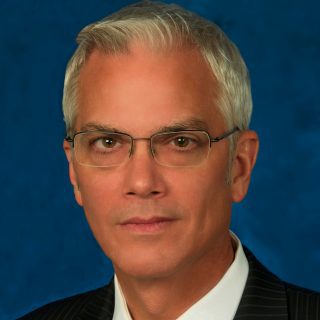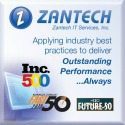
Due to the uncertainty of today’s economy, many private organizations and federal agencies, specifically the Office of Management and Budget (OMB), have have begun to recognize the benefit of Enterprise Risk Management (ERM) Programs.
And that expansion is something Todd Grams, Director of Deloitte, Federal Practice, is expecting. Experience has taught Grams that federal agencies need a way to consistently and reliably identify and manage risks.
Grams explained the importance and growing presence of ERM with WashingtonExec, along with his transition to the private sector after more than 30 years in public service.
WashingtonExec: Why do you see ERM programs as an area for growth in the federal contracting industry as the market contracts?
Todd Grams: There are two key reasons why ERM can be expected to grow in the federal government.
The first reason, simply put, is that ERM is needed and it’s the right thing to do. I believe that over time, more and more government leaders will want to have an enterprise-wide program for managing risk. Government agencies face unprecedented risk in carrying out their missions. ERM will help identify risks so that leadership can make informed decisions about whether to mitigate, reduce or accept each risk. Left unknown or unchecked, risks can impact an agency’s ability to achieve mission, goals and objectives. Risks not managed effectively can damage an agency’s reputation, wreak havoc on their budget and demolish morale across the institution. Risk management can also be used to drive performance by knowing what risks are worth taking and which ones are not.
The second reason is that agencies are now required to know and manage their risks based on recent guidance provided by the Office of Management and Budget (OMB). This year’s version of Circular A-11 makes a strong case for why agencies should implement an ERM framework to more effectively manage risks. Through A-11, OMB has raised the ante on risk management and increased expectations that risks will be more effectively managed across the federal government.
While reams of data are being collected and stored every day, the full potential for that data to inform leaders about risks and how to manage them in truly meaningful ways is seldom realized.
WashingtonExec: Can you talk a little bit about the “untapped data” that can be used for managing risk?
Todd Grams: During the years, I have heard many federal executives say: “We have lots of data, but little information.” While reams of data are being collected and stored every day, the full potential for that data to inform leaders about risks and how to manage them in truly meaningful ways is seldom realized. Without sophisticated analytics and risk sensing tools, agencies don’t have a full line of sight into risk. Without that line of sight, risks cannot be adequately understood or effectively managed or mitigated.
With the right information, from the right data, agency heads can better determine what risks are worth taking and which ones are not. It’s not enough to be aware of risks. Leaders must make the acceptance-mitigation decisions to make the most of opportunities where taking risk can drive performance.
WashingtonExec: What are your day-to-day responsibilities as a director in the Federal Practice at Deloitte? What drew you to the role? What do you find most challenging about your role?
Todd Grams: On a day-to-day basis, I am working to help federal agencies improve their risk management, financial management and performance management.
I was drawn to this role because Deloitte gave me the opportunity to work in an area for which I have a great deal of passion – enterprise risk management. My passion comes from first-hand experience working with ERM at the Department of Veterans Affairs (VA) and the Internal Revenue Service (IRS). At the VA, I served as the CFO and led the establishment of VA’s first-ever ERM program. At the IRS, I was Chief of Staff and had oversight of the Commissioner’s major initiatives, which included establishing an ERM program. Those experiences convinced me that federal agencies need a way to consistently and reliably identify and manage risks. Without ERM, agencies try to manage risk in an ad hoc manner. An ad hoc approach cannot ensure that the right risks are raised to the right people at the right time; that decisions to mitigate, reduce or accept risks are consistently made; or that action plans to manage risks are developed and implemented effectively.
I would say that the most challenging part of my new role, or at least the area that requires the most adaptation, is going from a decision-maker to an adviser. But at the heart of the matter, I am still doing what I loved doing for over three decades as a public servant – working hard to make the federal government more effective and efficient.
WashingtonExec: What do you see as the largest challenges for the contracting industry during the next 3-5 years?
Todd Grams: The current environment opens new opportunities, and we are exploring offering different contracting approaches. For example, we are looking at more broadly applying a share-in-savings (SIS) approach, or Value Based Billing as we call it in the commercial sector. Under a SIS approach, the contractor identifies and implements cost-savings initiatives and gets paid a portion of the savings realized by the agency. In addition to opportunities in the tax recovery and improper payments areas, many agencies processes may benefit from such a contracting approach.
We have not experienced a stricter administration of contracts vehicles. We have seen a slower pace of contract related actions, understandable with sequestration and the shutdown of the government. Also, we have seen a greater use of Lowest Price Technically Acceptable (LTPA) to select professional services contractors. While use of LTPA is appropriate for well-defined commodity goods and services, using LPTA to acquire less defined professional services, may result in award to less qualified contractors, which may increase the total cost to federal agencies in the long run.
WashingtonExec: Your career in government spans 30 years. How is your transition going? What do you wish you knew when you were transitioning from the public to private sector that you know now? What is your advice?
Todd Grams: I’m enjoying the transition into my new role. Throughout my federal career, I thrived on change and new challenges. I worked in a number of agencies and in a number of executive leadership roles. Each agency had its own culture and ways to get things done and each role has its own scope, responsibilities and challenges. From my diverse career path, I learned that every time you start a new job in a new organization, you have to prove your worth all over again and that stretches and challenges you and keeps you on your toes. It’s a great experience to have and helped prepare me for my current transition.
I spent about 18 months doing my homework before making the change from federal service to the private sector. I spoke with many former feds, who went on the same journey, to learn from their experiences and seek their advice. They gave great advice and openly shared what worked and what didn’t work. As a result, I can’t think of anything of significance that I know now that I wish I knew before moving to the private sector. I’m still learning every day, but there’s been no real “shockers.”
I would say that one of the most interesting things I’ve learned is that there’s a lot that is similar in the private and public sectors. Relationships are key – both inside and outside your organization. Persistence is also important in both worlds. So is the ability to prioritize and stay on strategy to ensure the most important things get done. Now there are differences, too. And that’s what makes it interesting. Figuring out those differences and learning to adapt, survive and thrive in a new set of circumstances is energizing and exciting.
WashingtonExec: Did you have any mentors or individuals who deeply influenced who you are or your decision to stand at the head of where you are now?
Todd Grams: Absolutely. I’ve been fortunate to have a number of individuals who gave me great advice or served as role models throughout my career. I think that has been one of the advantages of moving around from agency to agency and role to role, in that such movement increased my exposure to exceptional executives and leaders across government. These have included Charles Rossotti at the IRS, Jesse Brown at the VA, and Jim Murr and Bernie Martin at the OMB. Each of them played a key role in my development as a leader and contributed greatly to my federal career.


